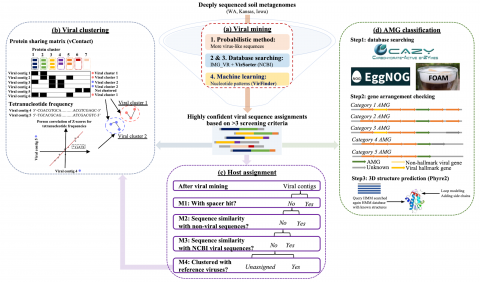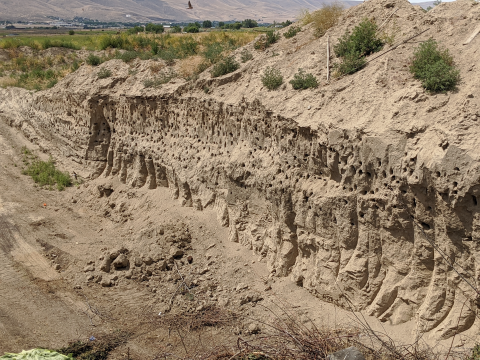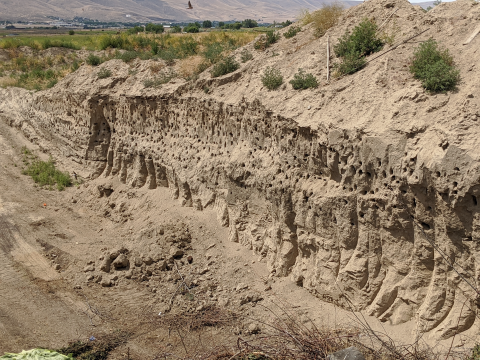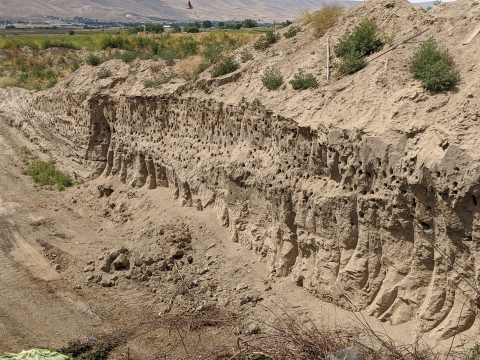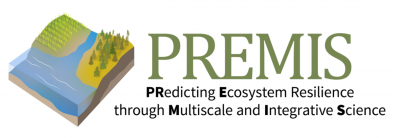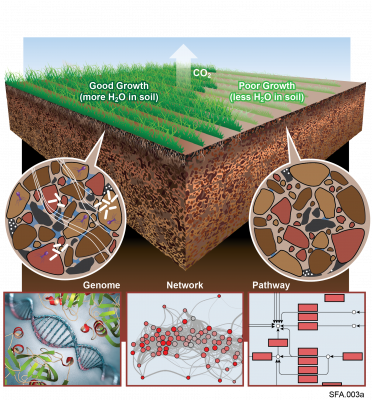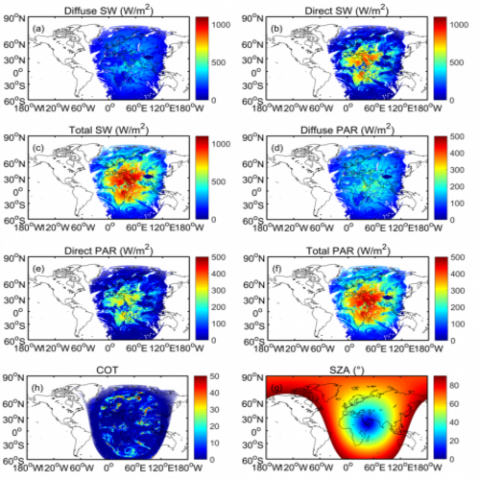Last updated on 2023-01-30T00:09:57+00:00 by LN Anderson Ebola Virus Experiment EIHH001 This experiment evaluated Immortalized Human Hepatocyte ( IHH ) cell line host response to wild-type Ebola viruses Zaire Ebola (ZEBOV '76) and Reston Ebola (REBOV '08) viral infection. Processed Transcriptome...
Filter results
Category
- (-) Earth System Science (98)
- (-) Integrative Omics (60)
- (-) Chemistry (2)
- (-) Energy Storage (2)
- Scientific Discovery (207)
- Biology (125)
- Human Health (83)
- National Security (20)
- Microbiome Science (19)
- Computing & Analytics (15)
- Computational Research (14)
- Energy Resiliency (10)
- Data Analytics & Machine Learning (8)
- Visual Analytics (6)
- Computational Mathematics & Statistics (5)
- Renewable Energy (5)
- Coastal Science (4)
- Data Analytics & Machine Learning (4)
- Atmospheric Science (3)
- Chemical & Biological Signatures Science (3)
- Weapons of Mass Effect (3)
- Cybersecurity (2)
- Distribution (2)
- Ecosystem Science (2)
- Electric Grid Modernization (2)
- Energy Efficiency (2)
- Grid Cybersecurity (2)
- Solar Energy (2)
- Bioenergy Technologies (1)
- Computational Mathematics & Statistics (1)
- Grid Analytics (1)
- High-Performance Computing (1)
- Plant Science (1)
- Subsurface Science (1)
- Terrestrial Aquatics (1)
- Transportation (1)
- Wind Energy (1)
Dataset Type
Tags
- Virology (57)
- Immune Response (53)
- Time Sampled Measurement Datasets (50)
- Gene expression profile data (47)
- Differential Expression Analysis (46)
- Homo sapiens (34)
- Mass spectrometry data (28)
- Multi-Omics (28)
- MERS-CoV (18)
- Mus musculus (18)
- Soil Microbiology (13)
- West Nile virus (13)
- Ebola (11)
- Influenza A (11)
- sequencing (9)
- Resource Metadata (8)
- Metagenomics (7)
- Omics (7)
- Human Interferon (6)
- Omics-LHV Project (6)
- Microarray (5)
- Genomics (4)
- Mass Spectrometry (4)
- Microbiome (4)
- Climate Change (3)
- Fungi (3)
- IAREC (3)
- metagenomics (3)
- Sequencing (3)
- soil microbiology (3)
Last updated on 2023-01-30T00:09:57+00:00 by LN Anderson Ebola Virus Experiment EIHH002 This experiment evaluated Immortalized Human Hepatocyte ( IHH ) cell line host response to response to genetically-reconstructed Zaire Ebola virus infection. Processed Transcriptome Data Unavailable
Category
MERS-CoV Experiment MDC001 Processed Omics Data Unavailable This experiment evaluated primary human dendritic cells infected with a wild type MERS-CoV (icMERS) virus. Related Experimental Data BioProject: PRJNA315103 GEO: GSE79172 (mRNA transcriptome response) Acknowledgment of Federal Funding The...
Category
Influenza A Experiment IM104 Processed Omics Data Unavailable This Influenza experiment evaluated mouse lung expression after etoposide treatment and infection with a pandemic H1N1 influenza strain. Related Experimental Data BioProject: PRJNA382278 GEO: GSE97555 (mRNA transcriptome response)...
Category
Viral genome assembly annotations from terabase metagenomes (TmG.1.0) from uncultivated soil collections from the IAREC field sites in Washington (IAREC), Kansas (KBPS), and Iowa (COBS), USA. Uncultivated virus Genomes (identified from soil metagenome datasets) Data DOI Package.
Category
Complete replicate terabase metagenome (TmG.2.0) of grassland soil microbiome collections from KPBS field site in Manhattan, KS. Metagenome (unclassified soil sequencing) Data DOI Package, version 2.0.
Category
Complete replicate terabase metagenome (TmG.2.0) of grassland soil microbiome collections from COBS field site in Boone County, IA. Metagenome (unclassified soil sequencing) Data DOI Package, version 2.0.
Category
Complete replicate terabase metagenome (TmG.2.0) of grassland soil microbiome collections from IAREC field site in Prosser, WA. Metagenome (unclassified soil sequencing) Data DOI Package, version 2.0.
Category
Omics-LHV, West Nile Experiment WGCN004 The purpose of this West Nile experiment was to obtain samples for omics analysis in primary mouse granule neuron cells infected with wild type West Nile virus (WNV-NY99 clone 382, WNVWT) and mutant virus (WNVE218A). Overall Design: Granule cell neurons from...
Category
The influence of tidal inundation dynamics on below ground carbon pools is poorly understood across coastal terrestrial-aquatic interface (TAI) ecosystems. The dynamic environmental conditions of tidally-influenced landscapes, the chemically complex nature of carbon compounds, the diverse nature of...
Category
Datasets
3
The Phenotypic Response of the Soil Microbiome to Environmental Perturbations Project (Soil Microbiome SFA) at Pacific Northwest National Laboratory is a Genomic Sciences Program Science Focus Area (SFA) Project operating under the Environmental Microbiome Science Research Area. The Soil Microbiome...
Datasets
23
Category
Datasets
1
Category
Datasets
54
The PNNL-SERDP database was constructed by PNNL to generate the quantitative infrared spectra of gases associated with biomass burning; the reference data are to allow detection and quantification of such gases via infrared absorption spectroscopy. Candidates for the database were selected based on...
Category
Datasets
2
Category
Datasets
1


